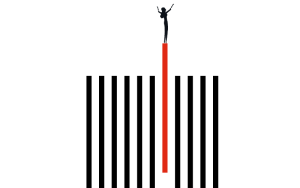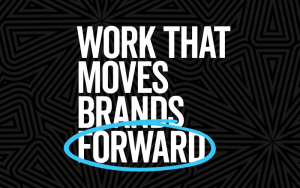[UPDATED FOR 2023]
It’s one of the holy grails of marketing—trying to crack the algorithm that search engines like Google use to rank your site. Getting ranked highly matters.
The first organic search result on Google receives an average clickthrough rate (CTR) of approximately 31.7%. CTR drops significantly for lower-ranking results, with the 10th position receiving only about 2.5% CTR. Being ranked at the top increases your chances of attracting organic traffic. The searchiverse, however, does have plenty of ideas on how it’s done. So how do you sniff out fact from fiction? We’ve been tracking down the truth, and here are the top six Search Engine Optimization (SEO) myths we’ve ferreted out—and the moves you can make to truly improve where your site ranks:
MYTH #1: YOU CAN SET YOUR SEO AND FORGET IT
Don’t believe this common refrain! One of the primary tenets of SEO is keeping your content new and updating it often. Since the search engines’ main goals are to provide relevant, useful, and timely information to users, fresh is always best. So leaving your website static and stale by not updating the copy or images can land you in the land of lower rankings! And in the meantime, competitors that constantly update their site might jump ahead in rankings, your backlinks (other sites linking to yours) can start disappearing due to “link rot,” and your site might be deemed irrelevant.
Luckily, this is an easy fix. Google Search Console lets you check your backlinks (called “external links” here) to see if they are no longer pointing to your site, so you can remedy them. You can also set a schedule with your team to renew your content on a regular basis. Refresh pages where people would expect to have new information, such as in your seasonal services. But if it ain’t broke, don’t refresh it – pages that talk about timeless information like “4 Types of Book Binding” don’t require constant updates.
MYTH #2: GO LONGER FORMAT FOR HIGHER RANKINGS
Many people think that longer content will always help your rankings, but this isn’t necessarily true. While some studies have shown that pages containing a higher number of words can rank higher, there is no substantiation of any correlation.
The most important metric is that your content is relevant, not that it is a certain number of words. It’s just like in school – remember when you asked your teacher how long your paper should be? The answer is “as long as it needs to be.” Just make sure it answers the users’ questions, needs, and wants. So if you’re taking note/s, focus on the quality of your words and not the quantity.
MYTH #3: DON’T WORRY ABOUT KEYWORD RESEARCH
We disagree. When it comes to keyword research, you should worry about it! Or at least be strategic about it. Keywords are still an effective way to boost rankings. Studies show that a keyword’s popularity translates directly into your site’s organic traffic, and that overall traffic still matters. Studying and using keywords can also help you design your page to be more relevant for your users, since you’re using their words and ideas to optimize it.
How do you find the right keywords? We can help! We have the tools to see where your customers are searching, and we can build them into your site.
RELATED: PPC AND SEO WORKING TOGETHER: A GUIDE
MYTH #4: SEARCH ENGINES DON’T TAKE PAY-PER-CLICK (PPC) INTO ACCOUNT
This is a tricky one. It’s true that there is no direct correlation between paying for ads on Google and receiving higher rankings. However, an indirect way to beef up your rankings would be to beef up your backlinks—and one way to do this is by running a PPC campaign. Since these campaigns effectively boost your rankings to the top positions, you’re receiving prime real estate. More people are likely to visit your site, and if they like what they see, more sites are also likely to link to your site. This sets you up for higher rankings.
Bottom line? Paid media can help you organically rank higher, since you’ll attract the backlinks that boost your ranking.
RELATED: GPT KILLED THE SEO STAR
MYTH #5: GOOGLE RELIES ON GOOGLE ANALYTICS DATA TO DRIVE RANKINGS
Nope! Thankfully, Google has said no to this one. Sometimes, site owners pore over their data, worried that higher bounce rates or lower time on page will cause their rankings to tank. Not the case. Since a site owner could filter the information to make the site appear to be performing better than it was actually performing, there’s no good way for Google to use this information. Plus, it’s all relative—a lower time on page may be just fine for a page with succinct information that people get before going and finding what they need. There are also far too many analytic variables to build a cohesive picture here.
MYTH #6 – SEO WILL PHASE OUT NOW THAT WE HAVE AI
SEO (Search Engine Optimization) remains as crucial as ever even with the advent of AI platforms like ChatGPT and Google Bard, and the two are not mutually exclusive, but rather interconnected. AI enhances SEO efforts by analyzing extensive data, user behavior, and content trends to optimize websites more effectively, making it essential for modern digital strategies. AI also assists in content creation, improves the user experience by analyzing behavior patterns, and adapts SEO strategies for voice search. It excels at data analysis, helps websites adjust to search engine algorithm updates, and plays a key role in delivering personalized search results. In essence, AI and SEO are collaborative tools that work together to achieve optimal digital performance, ensuring that businesses can navigate the ever-evolving digital landscape with success.
The takeaway? Use Google Analytics to get a handle on your site metrics, but don’t sweat its role in your rankings. Myths about SEO will continue to proliferate as long as we don’t have a clear window into the black box that is the search engine algorithm.
IRONMARK IS YOUR GO-TO FOR SEO
Don’t waste your time on myths. In fact, If all of this talk about SEO is making you think “I don’t have the time for this,” we get it. Our team of SEO experts stands ready to help you. Want to know how to get to the top of the rankings? Call us. We’ve been there before and we continue to work hard to stay there.




